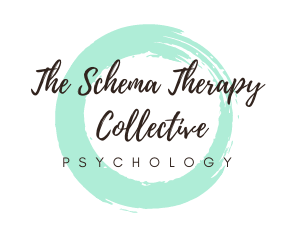Overcontroller is a label used to explain some of the overcompensation coping modes in schema therapy. When you are in an overcompensation mode you act, think and feel like the opposite of your schemas are true. Overcompensation modes serve to make you feel less vulnerable to whatever pain is in your vulnerable child mode and also to prevent your critic mode from activating.
The goal of the overcontroller mode is to help you feel protected from perceived or real threats by focusing attention, ruminating thoughts or control behaviours. All overcontroller modes are survival adaptations learned in childhood where your emotional needs were not met just by being you. You may not have been given a message of intrinsic worth and loveability in childhood. You may have been subject to harsh criticism and the desire for perfection from your caregivers.
Overcontroller modes can be easy to spot in others when you are on the receiving end of someone’s microscopic scrutiny, hyper-criticalness, righteous scolding and controlling behaviours but harder to see in yourself. Overcontroller modes can be such a constant companion to avoid blame and criticism that you may find yourself saying “that’s just who I am” or “I have high standards” or “I am just telling it like it is”. If you find you are regularly exhausted, it could be the impact of your overcontroller mode and its state of constant vigilance at the cost of rest, play and closeness with others.
The features of the different types of overcontroller modes are described below.
The perfectionistic overcontroller mode
When you are in a perfectionistic overcontroller mode you focus on attaining perfection to avoid criticism and misfortune. People with this mode spend inordinate amounts of time attempting to be perfect and error-free. Normal human mistakes can feel catastrophic. Situations in which it is difficult to attain perfection can be extremely anxiety-provoking for people with this mode. Some people with this mode are always behind on deadlines because they can’t bear to submit work that may have even a small error. This can lead to there being little if any time for relaxation and fun due to the time it takes to be perfectly groomed, have a perfectly clean home or do work or study to a perfect standard. If you have this mode you will tend to avoid fun and relaxation activities due to the lack of structure and inability to remain perfectly in control during those times where a happy child mode is required. It is quite typical for partners to complain that “all you do is work”. It is quite common for people with perfectionistic overcontroller modes to have strong emotional deprivation, failure and unrelenting standards schemas although other schemas can contribute.
Examples of characters with perfectionistic overcontroller modes in TV and film are : Miranda Priestly in the movie “The Devil Wears Prada“, Amy Santiago and Captain Holt from TVs Brooklyn 99, David Rose from Schitt’s Creek, Monica from Friends
The scolding overcontroller mode
When you are in a scolding overcontroller mode you tend to behave in a righteous, blaming way towards others in order to control them. There is a lot of “should’s” in relation to other people’s behaviours. You may tell people how to do things correctly in a scolding or dictatorial manner. This mode is particularly damaging in intimate relationships due to excessive contempt and criticism of partners who use a scolding overcontroller mode. Contempt and criticism are the two biggest predictors of divorce.
Until someone is aware of they have an overcontroller mode, any attempts of someone on the receiving end of scolding overcontroller criticism is usually met with more evidence and examples of how they are right and the other is wrong. When in an scolding overcontroller mode, you may lack the ability to self-reflect and may even think that the reason your criticism is not being received well is that the receiver is not wanting to accept wrongdoing or responsibility or is morally weak. You may see your behaviour as “telling it like it is”. The scolding overcontroller mode’s microscopic focus on the behaviours of others allows you to feel in control and also prevent the perceived catastrophe of things feeling out of control for you or being blamed by others. It also prevents you from seeing your own flaws and vulnerabilities. Common schemas involved are punitiveness and unrelenting standards.
Examples of characters with scolding overcontroller modes in TV and film are: Sgt Hartman in Full Metal Jacket, Dolores Umbridge from Harry Potter, Alf from Home and Away, Terri Schue from Glee, Red from Orange is the New Black.
The suspicious overcontroller mode
When you are in a suspicious overontroller mode you are vigilant to threat and the motives of others. This mode is like a guard on watch 24/7 for signs that people will try to control or manipulate you. This mode often spends a lot of time assessing and analysing the behaviours and responses of others. This mode is afraid that if it stops its surveillance of other people, you will be fooled or be on the receiving end of ill-intentioned behaviour. You will tend to hold others in suspicion or control their behaviours due to the belief if you do not do so you will be manipulated, controlled or harm will come to you. Others may describe you as “paranoid” when you are in this mode. Often the origin of this mode is a mistrust/ abuse schema and defectiveness schema. For example, if you have this schema you may never consider trusting your neighbours when you go away or to ask them for help with small tasks like collecting your mail, as you are certain they would “take advantage of you/ hold it over you”.
Examples of characters with suspicious overcontrollers in TV and film are: Most of the family members in Succession, Frank Underwood in House of Cards, Uncle Leo from Seinfeld.
The worrying overcontroller mode
This mode is sometimes called a ruminating overcontroller mode or overanalyser mode. This mode tends to try to feel in control by worrying about the detail and the what-ifs. If you ever find yourself paralyzed with worry, you have probably been in this mode. This mode is certain that the moment it takes its attention off the possibility of danger and threat something bad will happen and it will be their fault for not being focused on the threat. This mode is often present in people who have the vulnerability to harm schema and those who have diagnoses such as health anxiety disorder and generalised anxiety disorder. Often a client with this mode will say to me “but I could never forgive myself if I stopped worrying about it and it happened. It would be all my fault.”
Examples of characters with worrying overcontrollers in TV and film are: Fear from Inside Out, Piglet from Winnie the Pooh, Hannah from Girls
The flagellating overcontroller mode
The flagellating overcontroller mode is self-attacking. Its motto is “If I punish myself I will achieve success” or “I will be a better person for recognising and focusing on my flaws”. It’s role is to escape attack, humiliation and shaming of others and to appease the punitive critic mode. Self-punishment can occur through excessive self-criticism but also self-harm and deprivation. This mode is commonly seen in people with eating disorders and is described by Susan Simpson (ISST trainer/supervisor specialising in eating disorders) as “the foot soldier” of the critic modes. Simpson suggests that this mode sometimes develops when anger cannot be expressed at the child’s family due to fear of retaliation or the parent’s inability to cope with the anger. The child’s unexpressed anger then becomes internalised as self-attack. This mode provides the illusion of control from the inevitable punishment of others and the punitive critic mode. Emotional deprivation schema is often associated with this mode.
Examples of characters with flagellating overcontrollers in TV and film are: Sheila Rubin from Physical, Daisy from Girl Interrupted.
Overcontroller modes: what can you do if you have one?
Overcontroller modes are an adaptation to try to stay safe from criticism and blame for things going wrong. The problem with using your overcontroller mode/s is that even if it makes you feel protected, these modes keep you from getting your emotional needs met and tend to have a devastating impact on relationships. They also lead you feeling exhausted from the constant need for vigilance, scrutiny and unrelenting standards or in a chronic state of anxiety.
It’s worth working on reducing your use of your overcontroller mode so that you can have a better quality of life and relationships. In schema therapy, acknowledging your vulnerability and learning to use your Healthy Adult mode more often is the goal. This may feel scary in the beginning as you may be very used to being in your overcontroller mode and have used it to protect yourself since childhood. With less time in your overcontroller mode, a life with the freedom to be spontaneous, creative and playful awaits you.

Reference:
Edwards, D. A list of schema modes.pdf (schematherapysouthafrica.co.za)
SImpson, S. & Smith, E. (2019). Schema Therapy for Eating Disorders: Theory and Practice for Individual and Group Settings. UK: Routledge.


